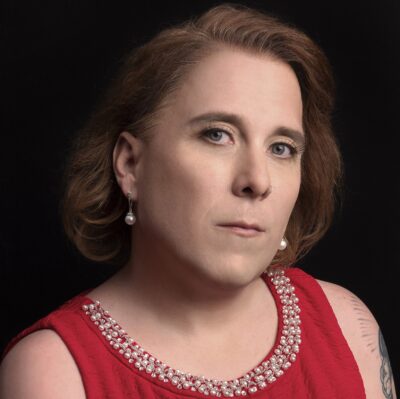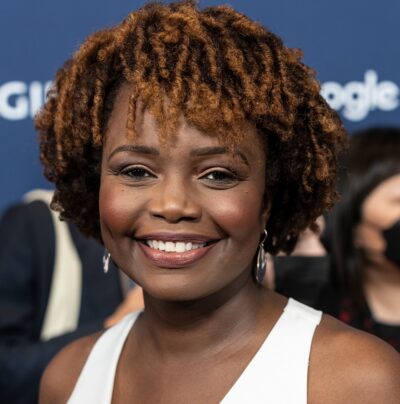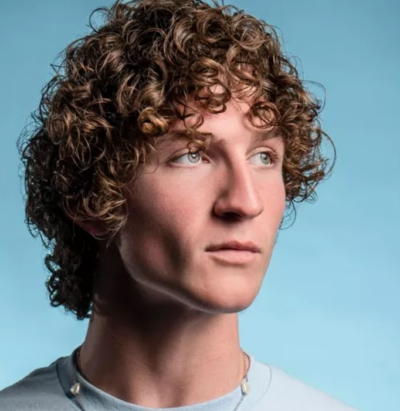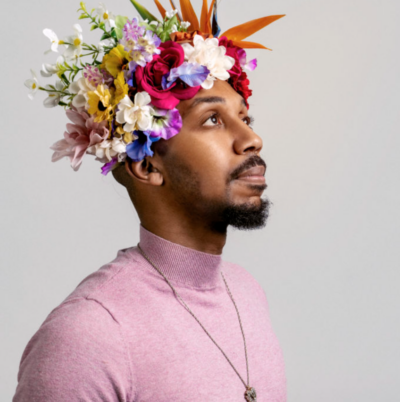Vote now for the 2022 LGBTQ Nation Hero of the Year

These LGBTQ heroes stood up for our rights, helped their communities, and inspired us to be our best selves. These politicians, authors, activists, and everyday people made the world a better place for LGBTQ people and everyone else.
Through visibility, policy, standing up to bigotry, and sheer pride in who they are, these nominees inspire us all and prove that, for LGBTQ people, the sky is the limit.
This year’s LGBTQ Nation Hero of the Year nominees are Jeopardy! champion Amy Schneider, who demonstrated she’s “just a normal person like we all are,” except really smart; White House Press Secretary Karine Jean-Pierre, the first out LGBTQ person to be the face of the White House; Jo Acker, a security guard who gave her life to defend others; teen activists who stood up against Florida’s Don’t Say Gay bill who we’re calling The Say Gay Teens; and whose music and video art brought gay culture to mainstream audiences; and George M. Johnson, one of the most banned authors of the year who became an outspoken critic of the right’s war on inclusive literature.
The five nominees for LGBTQ Nation 2022 Hero of the Year represent the best that we can be and how we can confront the worst. Vote now for LGBTQ Nation Hero of the Year.
Amy Schneider

On International Transgender Day of Visibility in March, just weeks after her 40-game Jeopardy! winning streak wowed fans and confounded trans critics, Amy Schneider was invited to the White House for a commemoration. During the visit, Schneider stopped by the Jim Brady Briefing Room for a peek, and ended up taking questions.
What would her visit to the White House accomplish?
“Just the same thing that I’ve been accomplishing, which is being a trans person out there that isn’t monstrous and isn’t threatening and is just a normal person like we all are,” she said. “So the more people like me can be seen, the harder it is to sustain the myths that are kinda driving a lot of this hate and fear.”
In her short time in the spotlight, the erudite and charming 42 year-old smashed Jeopardy! records, taught an 83-year-old man proper pronouns, got engaged, threw out the first pitch at a Giants game, and quit her job as an engineering manager in Oakland to help transgender youth, a leap Schneider called “nerve-wracking”.
Maybe not as nerve-wracking as earning $1,382,800 on Jeopardy!, but perfectly normal for the extraordinary Schneider.
.@jeopardamy's generous gift to America was bringing her whole self to Jeopardy! https://t.co/9yjltFd1Ov
— Monica Hesse (@MonicaHesse) January 27, 2022
Karine Jean-Pierre

Karine Jean-Pierre started making history even before she stepped up to the mic this year as the first Black woman and the first lesbian to serve as White House Press Secretary.
In 2021, as deputy press secretary, she was the first Black woman in 30 years to brief the press on the president’s behalf, since Judy Smith did it under President George H.W. Bush.
Karine's first gaggle on AF1 was on the trip to Atlanta where @POTUS visited the CDC. pic.twitter.com/YkULPzJmLB
— Doug Mills (@dougmillsnyt) April 1, 2021
It was all very Biden-normalizing. It was history.
Said Psaki of her successor as she passed the baton: “She is passionate. She is smart and she has a moral core that makes her not just a great colleague, but an amazing Mom and human. Plus, she has a great sense of humor.”
“I can’t wait to see her shine as she brings her own style, brilliance and grace to the podium.”
Jo Acker

Last October, security guard Jo Acker was working the afternoon shift at the Boise Towne Square mall in Idaho when she spotted a man brandishing a gun.
According to witnesses, she approached him.
“She was confronting the suspect. She was helping people be safe and get out of the way,” Ray Dawn, Acker’s longtime partner, told the Idaho Statesman. “She would have been the first one to go down to confront somebody.”
The incident left five injured and three dead, including the shooter, and Acker.
Acker left behind partner Dawn, a three-year-old daughter, Everay, five sisters and a stepbrother.
The 26-year-old was an Army vet, who served as a forward observer, and wore a black belt in taekwondo. The Seattle native and grew up in Boise and Colorado Springs.
“She had this presence about her that just made you feel safe and respected,” recalled Acker’s friend Shiloh Ren.
Another close friend, Dominique Cairistiona, told the Idaho Press: “On one hand I’m upset that she was selfless and put herself in danger — but on the other hand I would expect nothing less of her. That’s exactly her character, to do whatever she could to help as many people as she could.”
Acker’s sister, Karyn Kennedy, established a GoFundMe memorial “to help set up a bright future for Everay, the daughter left behind.”
The Say Gay Teens

In the Florida Senate last February, Gen Z showed up and took no Boomer prisoners.
“I’ve heard different members of the Legislature say something along the lines of ‘parents know what’s best for their kids,'” Will Larkins, a gay, nonbinary junior in Winter Park, Florida testified. “When it comes to the queer community, that is not true. If parents know what’s best for their kids, why did my best friend get kicked out of his house and have to live with me? Why do some many kids get abused for their sexuality and gender identity?”
Larkins was one among many students testifying in opposition to the Parental Rights in Education Act, including fellow Hero nominees Zander Moricz, Javier Gomez, Abbie Garretson, and Jack Petocz.
Between them, these five activists in Florida have organized protests, staged walk-outs, written op-eds, given their own LGBTQ history lessons to students, spoken at the White House and Department of Education, been suspended from school and won Webby Awards for their online activism in opposition to the bill signed into law by Republican Gov. Ron DeSantis in March.
Today, the Florida House passed the "Don't Say Gay" bill. Students are angry, frustrated and ready to fight this sickening piece of legislation. I'm organizing a statewide school walkout on March 3rd at 12:00 PM in opposition. I encourage student leaders to join me. #DSGWalkout pic.twitter.com/itcCmLVj6o
— Jack Petocz (@Jack_Petocz) February 24, 2022
Gomez, a senior at iPrep Academy in Miami, called the new law an exercise in denial.
“My philosophy, obviously, is that you’re born this way, just like Gaga said,” Gomez explained to WLRN in Miami in March. “It takes time for you to discover yourself. But a lot of people know that they’re trans, that they’re gay, they’re lesbian. They know at a very young age.”
Gomez continued, keeping it real: “To actively tell them that there is something wrong with them, or they’re incorrect under someone’s eyes — it’s demeaning and it’s demoralizing.”
George M. Johnson

Book bans aren’t new. Conservative ideologues have been torching new and controversial ideas since – and before – the most famous bonfire of the vanities in Quattrocento Florence.
But now there’s social media.
Right-wing groups and activists like Moms for Liberty, LibsofTikTok, and No Left Turn in Education are sowing outrage with weaponized book lists; right-wing candidates, officials and local school board scowls are reaping the rewards.
Just ask Johnson about Kansas City.
“I first found out about the book ban in September,” Johnson told The Grio about All Boys Aren’t Blue’s first imbroglio. “Basically, a guy who was running for the school board using my book as his main platform as to why he needed to be school board president. Initially, I laughed. To me it was like, ‘Wow, this is a really, really, really delayed reaction to a book that has already been on lists, won numerous awards and done all these things, but okay.’”
“But within, I would say, about six, seven weeks, it had jumped up to eight states that were challenging the book. And that’s when I knew, like, okay, this is actually not going to go away,” they recalled. “If we don’t freak out, they’ll be able to do it.”
Since then, the 2020 memoir, which explores what it’s like to grow up Black and queer in America, has been pulled from libraries or challenged in nearly 20 states, according to Johnson.
In the interim, the nonbinary author has spoken out fiercely against the book-banning frenzy, and enlisted librarians, teachers, and students in the fight.
As of today, All Boys Aren’t Blue has been removed from several Libraries in 8 different states. Send good energy as I now go on the offensive
Pennsylvania, Florida, Iowa, Arkansas, Missouri, Kansas, Virginia, & Texas. pic.twitter.com/uWw8jiSgMm
— George M Johnson (@IamGMJohnson) November 5, 2021
“From petitions, to going to school board meetings, to sharing their personal stories of how these books have helped them, we have been able to shift the narrative back to why these stories are necessary,” Johnson wrote in an essay for Global Citizen. “It makes it much harder to deny the importance of the work when more of us speak up than the few of them who are challenging it. At the end of the day, we have the capability to activate many others when we defend what is right.”
source https://www.lgbtqnation.com/2022/09/vote-now-2022-lgbtq-nation-hero-year/


Comments
Post a Comment